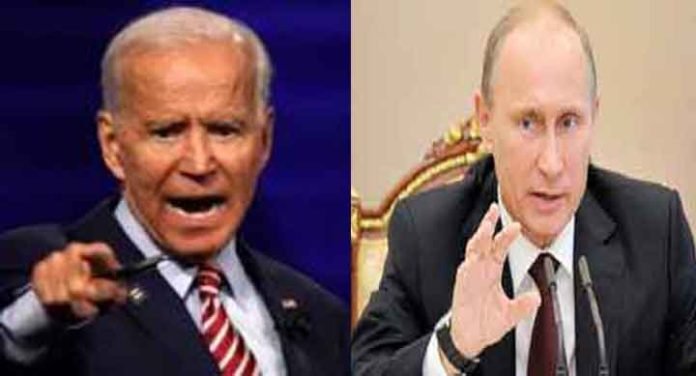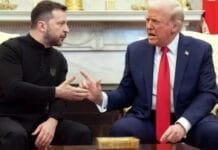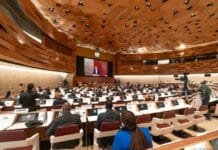U.S. Expels Russian Diplomats in Retaliation: A Deeper Dive into the Strained U.S.-Russia Relations
An Eye for an Eye in Diplomatic Circles
INVC NEWS
Washington : The Biden Administration recently ordered the expulsion of two Russian diplomats from the U.S., marking a tit-for-tat move in retaliation to Russia’s similar action last month. This development comes at a time when U.S.-Russia relations are treading on extremely thin ice, exacerbated by ongoing conflicts and espionage accusations. Let’s delve into the complex geopolitical landscape to understand the ramifications of this diplomatic maneuver.
Background: The Genesis of the Diplomatic Fallout
The U.S. State Department, as communicated by its spokesperson Matthew Miller, took this decisive action as a response to Russia declaring two American diplomats persona non grata. The expelled U.S. diplomats had reportedly been in contact with a Russian citizen en route to the U.S. Consulate in Vladivostok, Russia. This individual had previously been employed by the consulate and was arrested earlier this year. Miller emphasized that the U.S. will not tolerate any form of harassment towards its diplomats.
Unacceptable Actions & Consequences
“The ministry will not tolerate harassment of our diplomats by the Russian government,” Miller stated unequivocally. He further warned that any intolerable actions against American embassy personnel in Moscow would not go without consequences. The expulsions add another layer of complexity to the already tense U.S.-Russia diplomatic relations, which have sunk to their lowest since the Cold War era.
Escalating Tensions: Ukraine & Beyond
This expulsion comes amidst escalating tensions between the two nations, primarily over Russia’s military activities in Ukraine. The U.S. and Russia have found themselves on opposite sides of the conflict, with diplomatic communications becoming increasingly strained.
Accusations & Expulsions: The Russian Perspective
On September 14, the Russian Foreign Ministry named the expelled U.S. diplomats as Jeffrey Silin, First Secretary of the U.S. Embassy in Moscow, and David Bernstein, Second Secretary. They were accused of engaging in illegal activities and were ordered to leave Russia within seven days. According to Russian authorities, these individuals were in contact with former consular employee Robert Shonov, who stands accused of gathering intelligence for the U.S. about Russia’s military involvement in Ukraine among other issues.
Confirmation from Russia’s Federal Security Agency
Russia’s Federal Security Agency (FSB) confirmed the arrest of Robert Shonov in August. According to the FSB, Shonov had been collecting data concerning ‘special military operations and mobilization processes in Russian regions.’
Conclusion: Diplomacy at a Crossroads
The retaliatory expulsions signify that the relationship between the U.S. and Russia is fraught with discord, with little sign of immediate resolution. Diplomatic dialogues have dwindled to a bare minimum, and with ongoing global issues such as the conflict in Ukraine, the road ahead appears to be tumultuous. Both countries have made it clear that they are prepared to protect their interests at all costs, setting the stage for potentially greater geopolitical confrontations in the near future.
It’s clear that as long as each country continues to view the other through a lens of suspicion and geopolitical rivalry, diplomatic relations will remain in a precarious state, affecting not just the two nations but global stability at large.




















